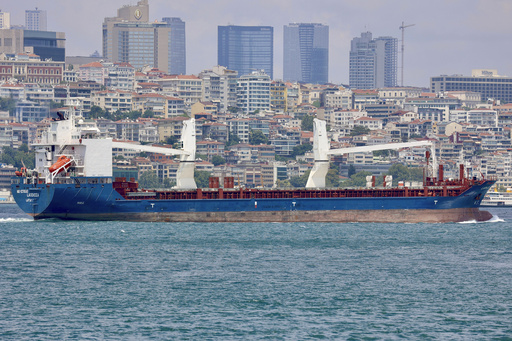BRUSSELS — European Union representatives have given the green light for a new set of sanctions against Russia, which are scheduled to take effect next week, coinciding with the third anniversary of Russia’s full-scale invasion of Ukraine, as confirmed by a high-ranking EU official and several diplomats on Wednesday.
This action takes place while European nations remain excluded from U.S.-led discussions aimed at resolving the ongoing conflict.
Since President Vladimir Putin initiated the invasion of Ukraine on February 24, 2022, the EU has implemented several rounds of sanctions against Russia. Over 2,300 individuals and entities, primarily governmental bodies, banks, and various organizations, have faced punitive measures.
Diplomats disclosed that the latest sanctions, constituting the 16th set of such actions, encompass travel bans, asset freezes, and trade limitations, though they requested anonymity. The sanctions are not finalized yet, pending ratification by EU foreign ministers on Monday, paving the way for their implementation.
Newly introduced measures specifically target Russia’s so-called “shadow fleet,” a collection of ships that are utilized to evade restrictions pertaining to oil and gas transport, as well as to carry pilfered Ukrainian grain. An additional 70 vessels suspected of being part of this fleet will be included in the already extensive list of over 50 vessels under scrutiny.
Ursula von der Leyen, the President of the European Commission, praised the anticipated adoption of these sanctions by the ambassadors from the 27-nation EU bloc. In a statement on social media, she emphasized, “The EU is intensifying its efforts to combat circumvention by targeting more ships in Putin’s shadow fleet and implementing new import and export bans. We are resolutely committed to maintaining pressure on the Kremlin.”
Additionally, nearly 50 Russian officials will face sanctions, joining an existing roster that already includes Putin, several of his close associates, and numerous lawmakers. The new measures specifically impact 13 Russian banks and three financial institutions, as noted by the diplomats.
The sanctions also aim to restrict the use of 11 Russian ports and airports identified as facilitating Moscow’s efforts to bypass an oil price cap and other sanctions already imposed by the EU. Furthermore, trade bans on certain chemicals and aluminum are part of this latest package of sanctions.




